Astrology, Kriya Yoga, Dharma
 Sudden changes provide an excellent research tool for astrologers. Perhaps this is fitting - since as we discussed in the previous chapter - Pluto and Scorpio deal with the Mysteries. It' one thing for an astrologer to analyze the dynamic forces of our personality - and how they change over time - but that can be subjective. Death and major life changes, on the other hand, are objective. They are final. They are events. While aspects and signs relate mainly to the structure of the psyche, the houses are important too. They relate to outer circumstances and the objective facts of life. Events come by surprise - even when we try to avoid them. The word "disaster" means, "against the stars".
Sudden changes provide an excellent research tool for astrologers. Perhaps this is fitting - since as we discussed in the previous chapter - Pluto and Scorpio deal with the Mysteries. It' one thing for an astrologer to analyze the dynamic forces of our personality - and how they change over time - but that can be subjective. Death and major life changes, on the other hand, are objective. They are final. They are events. While aspects and signs relate mainly to the structure of the psyche, the houses are important too. They relate to outer circumstances and the objective facts of life. Events come by surprise - even when we try to avoid them. The word "disaster" means, "against the stars".
So for the student of astrology - and we are all students - much can be learned by studying the times when people make their Transition, or when events take a sudden turn. The word surprise combines sur and prehension: literally, that which is beyond our ability to grasp. As we discussed in Chapter 4, the word "grasp" is closely related to the Sanskrit word for planet: graha.
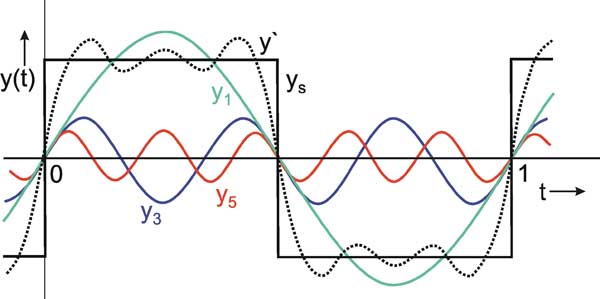 The Vimshottari Dasha system is a 120-year cycle, which gets divided up into 9 planetary periods of unequal length. For example, the Jupiter Period lasts 19 years, the Moon period lasts 10 years, the Sun lasts 10 years, etc. Adding up all 9 periods, we get 120 years.
The Vimshottari Dasha system is a 120-year cycle, which gets divided up into 9 planetary periods of unequal length. For example, the Jupiter Period lasts 19 years, the Moon period lasts 10 years, the Sun lasts 10 years, etc. Adding up all 9 periods, we get 120 years.
Each of those 9 periods is divided up into 9 sub-periods, according to the same ratios. For example, the Moon Dasha lasts 10 years, so it is 10/120 or 1/12 of the whole cycle. Therefore, the Moon sub-period of any major period lasts 1/12 of that major period. Since the Venus Dasha lasts 20 years, then Venus/Moon sub-period or Bhukti lasts 1/12 of that, or 20 months. No one really knows when this system originated, but it seems to work very reliably... when it works !
Like many techniques in Astrology, the Vimshottari Dasha system works best, when chart patterns are extreme. When they are less extreme, Dashas come and go with little effect. That bears repeating: text books are full of compelling examples. The authors have chosen sample charts in advance, precisely because they are exaggerated, but Dashas are a reliable predictive technique in our charts, only when planetary patterns are heavily emphasized. Otherwise, their results can be more subtle and indirect.
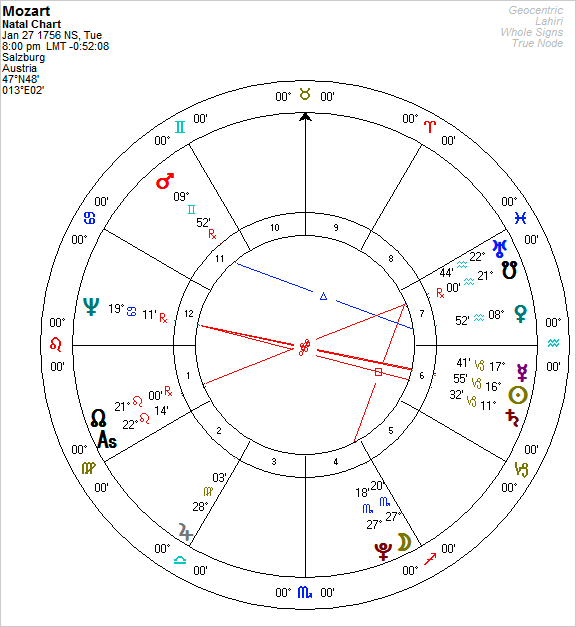
Wolfgang Amadeus Mozart was one of the most prolific composers of all time, in spite of a rather short life-span: 35 years. Today we might call him a workaholic. Music just flowed through him. While other maestros like Beethoven struggled with every line, Mozart seemed to simply emanate music - fully finished - like someone taking dictation.
Mozart started to play the keyboard at age 3 and had already produced his first musical compositions by the age of 5. By 11, he was touring Europe - giving concerts as a child prodigy, performing before the courts of royalty. Like other child stars, Mozart soon became a primary source of income for his family.
 Mozart' chart contains a Sixth House emphasis: hard work, detail work, health and illness. Mercury is domicile in the Sixth House: it rules Virgo, the sixth sign. Sun in the Sixth House, along with task-master Saturn, makes for a life of service, dedication to detail and labors of love.
Mozart' chart contains a Sixth House emphasis: hard work, detail work, health and illness. Mercury is domicile in the Sixth House: it rules Virgo, the sixth sign. Sun in the Sixth House, along with task-master Saturn, makes for a life of service, dedication to detail and labors of love.
Indeed, having the Sun in the Sixth House is more than enough to make one a busy bee. It comes as no shock therefore that he composed music almost continuously for others to appreciate. His music is highly structured, appropriate to the influence of Saturn. It is sublime architecture in heavenly motion.
Although Saturn is strengthened by being in its own sign Capricorn, it is weakened by opposition from Neptune. As lord of the Sixth House, an afflicted Saturn does not bode well for long life and resistance to illness. Malefic aspects from Neptune bring weakness of the Immune System. An inconjunct aspect from Mars suggests troubles due to imbalanced Fire or pitta: what doctors used to call "febrile complaints".
Mercury is lord of the Second House of wealth. Its placement in the Sixth House suggests that wealth (Second House) comes through one' own efforts (Sixth House). They key to life for sixth house natives is hard work. The Sun, ruler of the first house and therefore of the chart as a whole, is conjunct Saturn, opposed by Neptune. As a general indicator of health and vitality, an afflicted Sun is a challenge to longevity. Placement in the 6th house of illness, makes matters worse. Being lord of the chart, makes health matters worse still.
Mozart was born on a Jupiter station point. And where is that Jupiter ? In Virgo. More of same again, as Virgo is the 6th sign and corresponds to the 6th House.
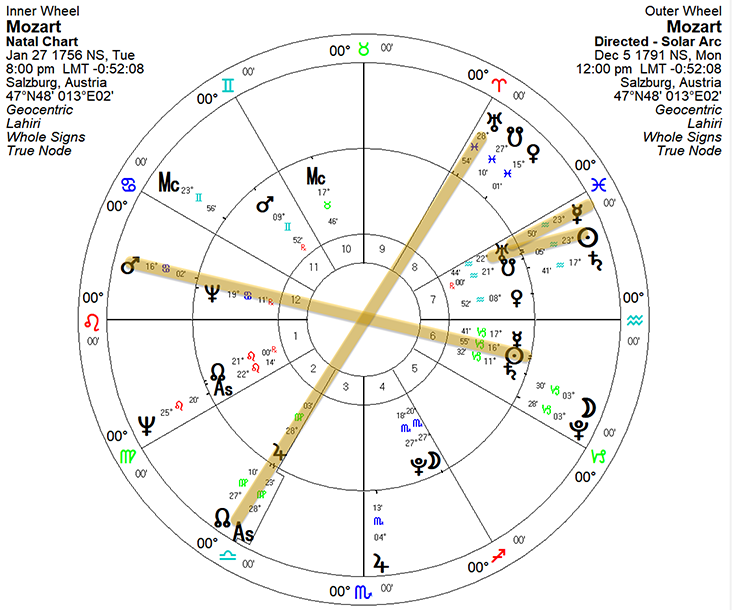
Mozart died at the end of his Sun dasha. Directing his chart by Solar Arc (approximately 1 degree per year) we see directed Sun conjunct Uranus and directed Mars opposed natal Sun. Malefic aspects to the Sun, the general indicator of wellness and vitality, are dangerous. For Leo charts where the Sun is lord of the chart, the influences are even more threatening. At the same time, directed Uranus formed an opposition to Jupiter, the lord of the Eighth House, the house of death. When the light goes out, the native makes the transition. With Uranus/Sun aspects, the transition is often sudden and unexpected.
Let' say a chart contains a planet in a particular house. According to theory, when the Dasha or Bhukti of that planet comes along, the symbolism of that planet, in that house, gets emphasized in the life of the individual. Hindus say that we recieve Karma Phalam ("fruits of action"). In Western parlance: "As you sow, so shall you reap".
 The horoscope of John F Kennedy shows Jupiter in a very early degree. Planets at 0 degrees are said to be afflicted and weak. Jupiter is also very close to Mars, a natural malefic and the prime significator of accidents. For most of his adult life, he coped with great physical pain brought about by a war injury.
The horoscope of John F Kennedy shows Jupiter in a very early degree. Planets at 0 degrees are said to be afflicted and weak. Jupiter is also very close to Mars, a natural malefic and the prime significator of accidents. For most of his adult life, he coped with great physical pain brought about by a war injury.
Like Elvis Presley, JFK lives on in the collective memory. He is more famous for his sudden death in an open motor car, than for any single accomplishment of his Presidency. His untimely demise enshrined him with a form of eternal life. The investigation into his assassination and the conspiracy theories which surround it, continue with no end in sight - decades later. Like Elvis, JFK has become a cultural "immortal".
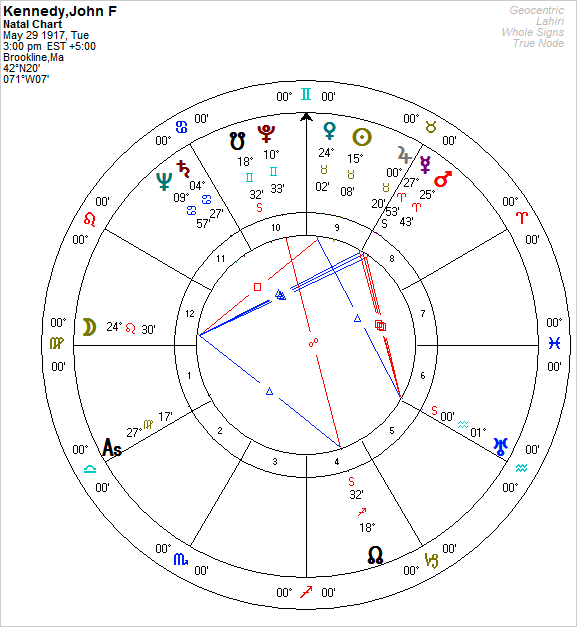
Kennedy was born on a Mercury Station Point. Mercury is the ruler of his Virgo Ascendant. Mercury is the most important planet in the chart and is in the Eighth House. As we have been discussing, the Eighth House deals with powerful transformations, accidents, death and events beyond our control. It is no surprise therefore, that the official inquiry into his murder - the Warren Report - opened as many questions as it attempted to answer.
Like Pluto, the Eighth House deals with conspiracies and criminals, with events and individuals that shape the course of human destiny. In Kennedy' chart, Jupiter also rules the Eighth House from the Moon (Pisces) and the Eighth House from the Sun (Sagittarius), so Jupiter takes on even more Eighth House symbolism. We might even say that his Eighth House is the most prominent house in his horoscope. Kennedy is Mister Eighth House.
 At the time of his assassination in November 1963, Kennedy was running the Dasha/Bhukti of Jupiter/Saturn. The combined influence of a weak planet and Saturn itself (the primary malefic), signaled his unexpected passing.
At the time of his assassination in November 1963, Kennedy was running the Dasha/Bhukti of Jupiter/Saturn. The combined influence of a weak planet and Saturn itself (the primary malefic), signaled his unexpected passing.
To any Indian astrologer, that particular time in his life (September 1962 to April 1965) would have stood out, as especially dangerous. An Indian astrologer could have seen it on the day JFK was born, while drawing up the Vimshottari Dashas according to custom.
If such events are so obvious that they can be predicted well in advance, this brings us back to the perennial question: Are things pre-determined ? Do I have free will ?
Before we ask that question, we have to ask: Who is this I ? When Shakyamuni Buddha stated, 2500 years ago, that a thoroughly separate individual can never be found, he was restating an already ancient view. Hindus find it in the Four Maha Vakyas ("Great Utterances") of the Upanishads:
If, as the ancient traditions claim, we are part of Life - not apart from Life - then we are not entirely separate. Nor are we entirely the same as the Whole. Either, is an extreme view. Truth is to be found by the avoidance of extremes. Such is the nature of what the Buddha called Right View.
From one perspective, it looks as though we make our own choices. From the other perspective, it is clear that we make our choices according to our capacity - which has already been conditioned by previous experience. Events appear to happen spontaneously - but at the same time, events can be predicted, to a greater or lesser degree.
So to answer the question "Are things pre-determined or do I have free will", we can answer that the question is false in the first place. Let' say we believe that the Earth is flat. Now we have a big dilemma: Does the Earth have an edge, or does it go on forever ? It has to be one or the other, right ? It can't be both, can it ?
The real shape of the Earth - a sphere - is a more sophisticated notion. It introduces a whole new set of questions. The fact that the Earth is round, floating in a vast Universe filled with many other spheres, presents a disquieting image for Flat-Earthers. But one thing' for certain: when we see how the Earth really is, the wrong question vanishes by itself.
So it is with Free Will versus Predestination: the question itself, is flawed. The reality of things is not as simple as black and white. It requires more intelligence to understand. Like the discovery that the Earth is round, the deeper reality of things is at once remarkable and... surprising.
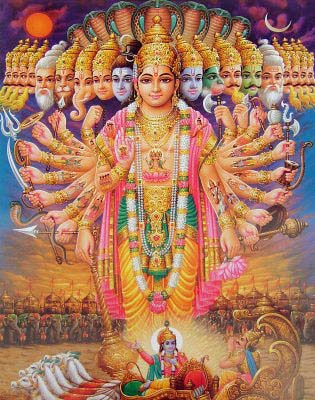 Leela is an important Sanskrit word. It means "play" or "pastime". The idea is that the Universal Mind divides itself into countless apparently separate individuals, just for the fun of it. As an adventure - a Drama Divine - Spirit becomes Matter, to see how lost it can get, only to rediscover itself in the end. In this game of Hide and Seek, the Lord acts out all the roles of life simultaneously: One identity, many experiences. As Shakespeare said:
Leela is an important Sanskrit word. It means "play" or "pastime". The idea is that the Universal Mind divides itself into countless apparently separate individuals, just for the fun of it. As an adventure - a Drama Divine - Spirit becomes Matter, to see how lost it can get, only to rediscover itself in the end. In this game of Hide and Seek, the Lord acts out all the roles of life simultaneously: One identity, many experiences. As Shakespeare said:
All the world' a stage,
And all the men and women merely players;
They have their exits and their entrances,
And one man in his time plays many parts
The mystical notion here, is that our concept of who we are - like that of a Flat Earth - is flawed. We are more than just individuals who appear upon the stage of life. We are more than separate beings who live in isolation. We are part of something much larger. Our destiny is intertwined with that of all others. Our cycles of growth and unfoldment, are part of larger cycles. Astrology gives us a tool by which we can better understand those cycles and live better within the vast network of interconnection.
Another marvelous Sanskrit term is Vishva Svarupa, or Cosmic Form. In the Bhagavad Gita, Lord Krishna gives his student Arjuna a brief glimpse of his "real" nature: innumerable bodies in all directions and locations. This vision of the Divine so stuns Arjuna, so terrifies him, that Krishna quickly changes back into human form. In the Indian tradition, all life is sacred. We are all part of the same Wholeness. Some times it appears as an individual and some times it appears as... Everything.
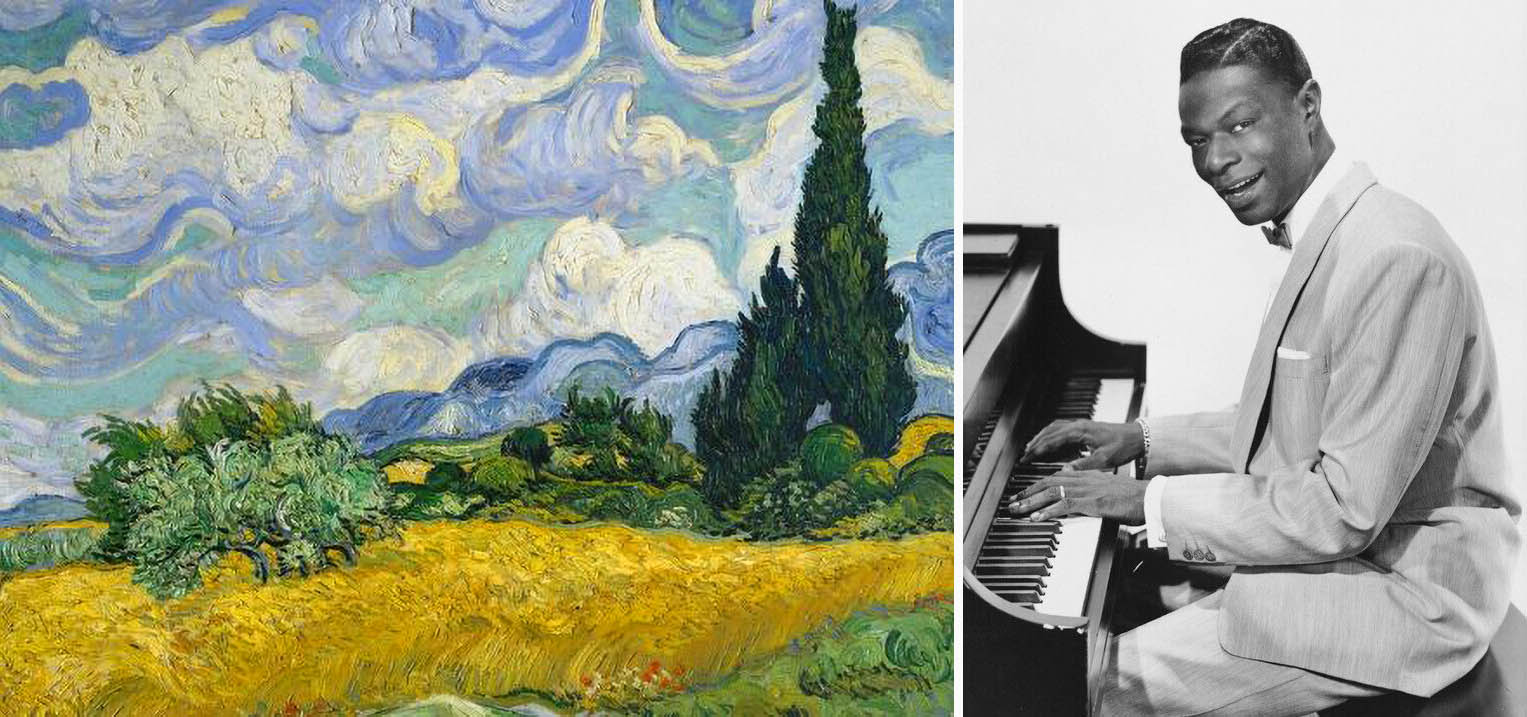 Interested in the horoscopes of other artists and musicians ?
Interested in the horoscopes of other artists and musicians ?
See these articles:
 Interested in the horoscopes of other leaders ?
Interested in the horoscopes of other leaders ?
See these articles:
 Want to learn more about Astrology ?
Want to learn more about Astrology ?
See these authors: